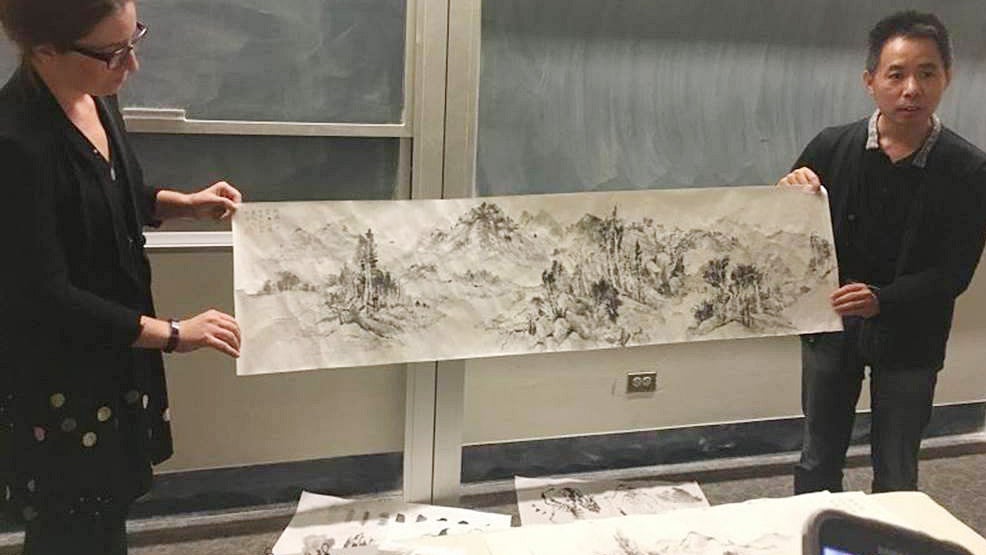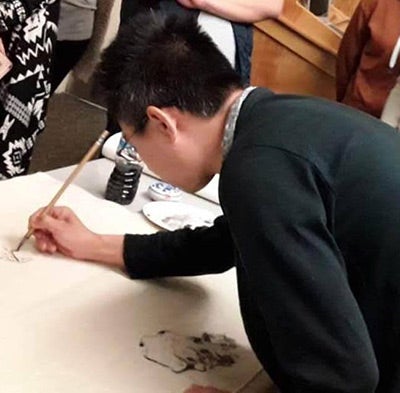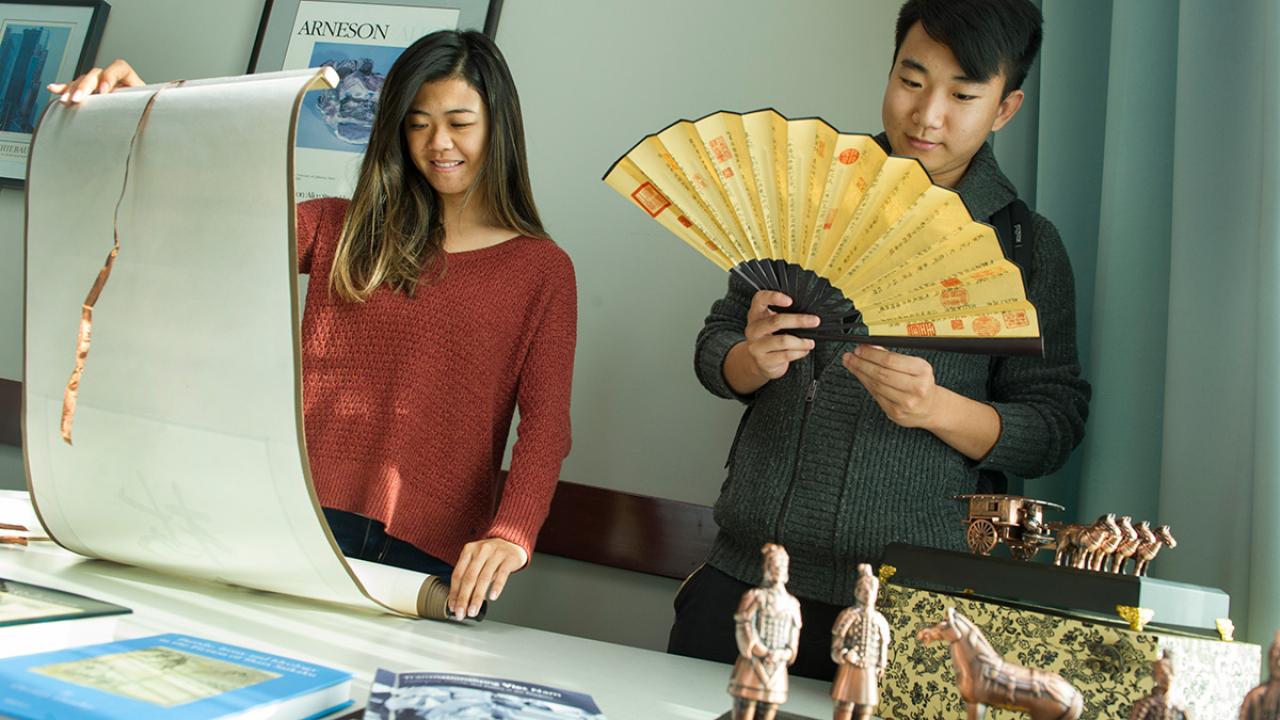East Asian studies explores a vibrant region that contains the second and third largest world economies, some of the longest lasting civilizations, and more than a quarter of the world’s population.
Understanding East Asia today requires knowledge and appreciation of the cultural orientations, traditional practices and social forces that have shaped its diverse cultures and societies. The East Asian Studies Program delves into the depth, breadth and diversity of human achievements to gain this understanding.
Our faculty research and teach across the disciplines including anthropology, art history, communication, economics, history, languages, literature, psychology, political science and sociology. Students will discover a flexible educational path, and because the major is interdisciplinary, they can tailor their degree to their interests and needs.
Students have range of specialty courses

Beyond the core of basic courses, students choose from a wide range of more advanced and specialized courses in allied departments, such as:
- Chinese and Hong Kong cinema (in comparitive literature and in cinema and digital media)
- Markets, culture and inequality in China (in sociology)
- Science, sexuality and society in modern China (in history)
- Japanese popular culture (in Japanese)
- Economy of East Asia (in economics)
- The Chinese Communist Revolution (in history)
- Introduction to Japanese folklore (in Japanese)
- Asian art survey (in art history)
Study abroad is strongly supported and encouraged to help ensure students understand a language and culture other than their own. Also, UC Davis offers opportunities for Summer Abroad internships in East Asia.
A number of students decide to double major, combining East Asian studies with another area of study. Students majoring in other fields such as literature (such as Chinese and Japanese), economics, history, communication, international relations, sociology and even various agricultural sciences (such as international agricultural development) often find East Asian studies relevant to their particular career goals or academic interests. We’re especially interested in introducing appreciation of East Asia to future economists, lawyers, artists, business executives, doctors and agronomists.
New skills will widen career horizons

Students develop skills that are vital for their careers and postgraduate education, such as effective communication, social interaction and presentation. More importantly, however, the diverse social and cultural structure and history of the East Asian region opens up students’ horizons, sheds light on new perspectives, cultivates problem-solving skills and nurtures critical reasoning.
Our alumni fondly remember their experiences in the East Asian Studies Program. One alumnus remarked:
East Asian studies gave me a chance to make lasting friendships and connections with people around the world who are interested in and pursuing careers in this field.
Another alumna recalls:
Experiences in East Asian studies benefited me by further developing my research skills and intellectual curiosity. Personally, I learned that I really did not know my own Japanese culture and history when I thought/assumed I did. You can learn so much about yourself and about your own country when you are able to see them objectively. East Asian studies helped me realize this.
Preparation for international work and study
UC Davis graduates in our major are well prepared for careers that involve working with East Asian affairs as well as for graduate studies in any aspect of the East Asian economy, culture and society. Common career choices include journalism, international business, government service, teaching and social services.
For information on course requirements, visit East Asian Studies Major Requirements, East Asian Studies Minor Requirements and 2017-18 course offerings.
Alumni reflections
Evan George ’06, B.A. in East Asian studies and sociology, attorney: I arrived at UC Davis trying to earn my degree so I could move on to the next stage of my life. I was lucky to have my curiosity piqued by an article in The New York Times on the urban-rural disparity in China. I took a “Social Stratification China” course and my life changed. I met a dynamic professor who cared about her students and their work.
As an undergraduate, I worked on an East Asian Studies Fellowship to learn about academic research, and studied abroad through the Education Abroad Program. After graduation, I spent two years living and working in China, returning to the United States to attend law school. I then went back East Asia to earn a master’s degree in Chinese law for foreign lawyers, the first program of its kind in China at Tsinghua University.
Currently, I run my own law office in California, and as part of the practice, I consult on China and Chinese regulations.
LeRyan Anthony Burrey ’15, B.A. in East Asian studies, educator: My sensei in the East Asian Studies Program are my greatest inspirations. They helped me start my career, as it is theirs, too, ultimately. I wish to be the greatest educator I can be, and I have them to thank for that. I hope to become an advisor or ambassador for the United States and Japan at large.
Aimee Fung ’15, B.A. in East Asian studies, assistant account executive: I work in an advertisement agency and manage multiple projects for one of our major clients. A lot of our work is in-language and is targeted towards Asian Americans in the United States. I use what I’ve learned about the different East Asian cultures and their people as well as my Chinese language with co-workers and in reading Chinese written copy for ads. I developed a lot of other skills in the program that help me in my occupation — communication, presentation, problem solving, note taking and critical reasoning.
Stay tuned for future opportunities to learn about East Asian studies on our Facebook page, and contact our East Asian Studies Advising Center at 530-752-9241 to consider joining our program.
Xiaoling Shu is a professor of sociology and director of the East Asian Studies Program. A professor who analyzes both China and the United States, her research focuses on market transition and globalization as it affects gender, the sense of well-being, family, marriage, and sexual behaviors and attitudes.
